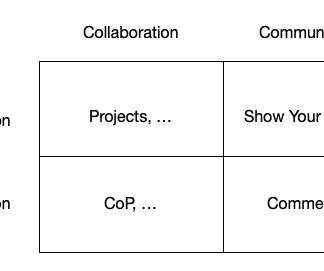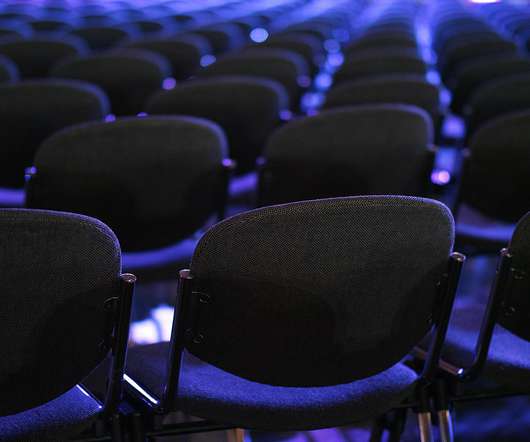Unpacking collaboration and cooperation?
Clark Quinn
SEPTEMBER 1, 2020
That’s why you see it in networks…. I wondered whether there are two types of cognitive actions, e.g. collaboration and communication. Or you could be part of a Community of Practice and actively trying to improve something. That’s why you see it in market economies… cooperation means ’sharing’. And I agree.







































Let's personalize your content